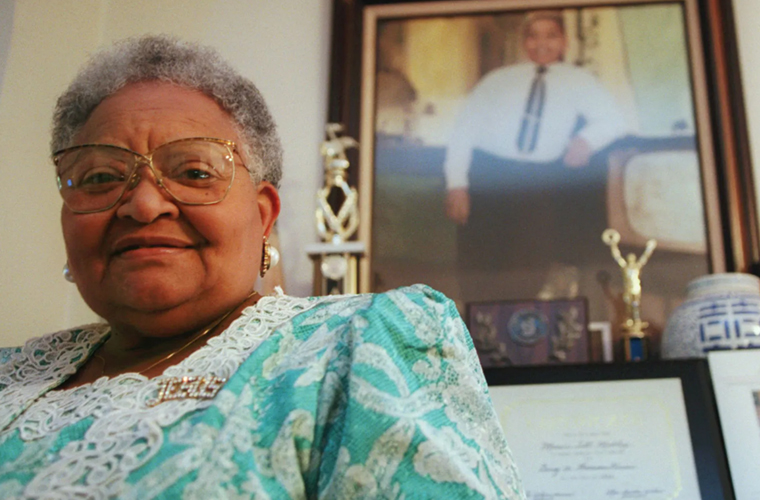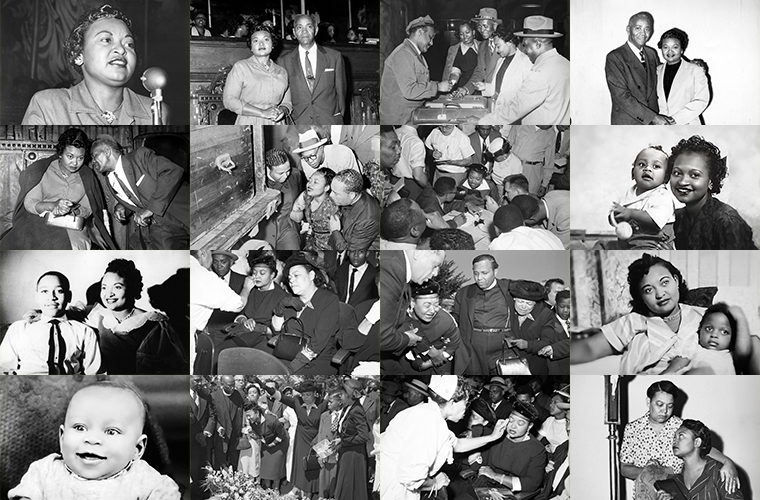Mamie Elizabeth Till-Mobley, born Mamie Elizabeth Carthan on November 23, 1921, in Webb, Mississippi, was an American educator and civil rights activist whose life was profoundly shaped by personal tragedy and a relentless pursuit of justice. Her family moved to Argo, Illinois, when she was a young child, part of the Great Migration of African Americans seeking better opportunities in the North. Raised in a close-knit community near Chicago, Mamie excelled academically, graduating at the top of her high school class and briefly attending college before entering the workforce.
In 1940, at the age of 18, Mamie married Louis Till, and the couple welcomed their only child, Emmett Louis Till, on July 25, 1941. The marriage dissolved soon after, and Mamie raised Emmett as a single mother, working long hours as a clerk to provide for them while fostering a strong bond with her son. Known for his vibrant personality and sense of humor, Emmett was the center of Mamie’s world. She instilled in him values of resilience and dignity, teaching him to navigate the racial realities of 1950s America with caution and pride.
In August 1955, 14-year-old Emmett traveled to Money, Mississippi, to visit relatives. During this trip, he was accused of whistling at or making a remark to Carolyn Bryant, a white store clerk, an act that violated the strict racial codes of the Jim Crow South. Days later, on August 28, 1955, Emmett was abducted from his great-uncle’s home by Carolyn’s husband, Roy Bryant, and his half-brother, J.W. Milam. The two men brutally beat, tortured, and murdered Emmett, dumping his body in the Tallahatchie River. His body was discovered three days later, mutilated beyond recognition.
Mamie’s response to her son’s murder transformed her grief into a catalyst for the civil rights movement. She insisted on bringing Emmett’s body back to Chicago and made the bold decision to hold an open-casket funeral at Roberts Temple Church of God in Christ. From September 3 to September 6, 1955, tens of thousands of mourners viewed Emmett’s disfigured body, an act Mamie orchestrated to expose the horrors of racial violence. She famously said, “I wanted the world to see what they did to my boy.” Photographs of Emmett’s body, published in Jet magazine and other outlets, shocked the nation and galvanized African Americans, amplifying calls for justice and equality.
The trial of Bryant and Milam in September 1955 became a national spectacle. Mamie traveled to Mississippi to testify, facing a hostile environment in a segregated courtroom. Despite overwhelming evidence, an all-white, all-male jury acquitted the two men after a brief deliberation. The miscarriage of justice drew widespread outrage and further fueled the civil rights movement. Months later, protected by double jeopardy, Bryant and Milam confessed to the murder in a paid interview with Look magazine, admitting their actions with chilling nonchalance.
Mamie’s activism extended far beyond the trial. She became a sought-after speaker, traveling across the country to share Emmett’s story and advocate for civil rights. She joined forces with organizations like the NAACP, speaking at rallies, churches, and schools to demand justice and systemic change. Her courage inspired figures like Rosa Parks, who later said she thought of Emmett Till when she refused to give up her bus seat in Montgomery, Alabama, sparking the Montgomery Bus Boycott in December 1955.
Determined to honor her son’s memory, Mamie returned to school, earning a bachelor’s degree in education from Chicago Teachers College in 1960. She worked as a teacher in the Chicago public school system for over two decades, dedicating herself to shaping young minds while continuing her activism. In 1973, she married Gene Mobley, a supportive partner who stood by her side until he died in 2000. Mamie also founded the Emmett Till Players, a youth group that performed dramatic readings of civil rights texts, including Martin Luther King Jr.’s speeches, to educate new generations about the struggle for equality.
In her later years, Mamie co-authored a memoir, “Death of Innocence: The Story of the Hate Crime That Changed America,” which was published posthumously in 2003. The book detailed her life, Emmett’s murder, and her lifelong commitment to justice. She remained active in community work, mentoring youth and speaking out against racial injustice until her health declined. Mamie Till-Mobley passed away on January 6, 2003, at the age of 81, leaving a legacy as a mother whose grief ignited a movement.
Her impact endures through cultural works, including documentaries, films, and books that recount Emmett’s story and her fight for justice. The Emmett Till case is widely regarded as a pivotal moment in the civil rights movement, exposing the brutality of systemic racism and inspiring activists to push for change. Mamie’s decision to let the world see her son’s body remains one of the most powerful acts of resistance in American history, a testament to her strength and unwavering resolve to transform personal loss into a call for justice.


